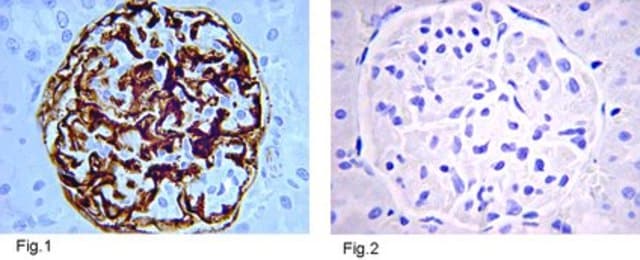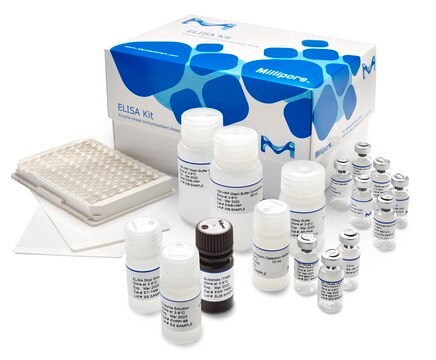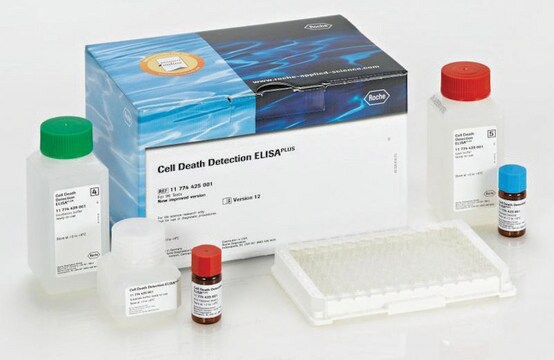I2018
Monoclonal Anti-Insulin antibody produced in mouse
clone K36AC10, ascites fluid
Synonym(s):
Insulin Antibody, Insulin Antibody - Monoclonal Anti-Insulin antibody produced in mouse
About This Item
Recommended Products
biological source
mouse
Quality Level
conjugate
unconjugated
antibody form
ascites fluid
antibody product type
primary antibodies
clone
K36AC10, monoclonal
contains
15 mM sodium azide
species reactivity
feline, human, rat, horse, rabbit, guinea pig, bovine, monkey, sheep, canine, pig
technique(s)
dot blot: suitable
immunohistochemistry (formalin-fixed, paraffin-embedded sections): 1:1,000 using human or animal pancreas
radioimmunoassay: suitable
isotype
IgG1
UniProt accession no.
shipped in
dry ice
storage temp.
−20°C
target post-translational modification
unmodified
Gene Information
human ... INS(3630)
Related Categories
General description
Application
Biochem/physiol Actions
Disclaimer
Not finding the right product?
Try our Product Selector Tool.
Storage Class Code
12 - Non Combustible Liquids
WGK
nwg
Flash Point(F)
Not applicable
Flash Point(C)
Not applicable
Choose from one of the most recent versions:
Already Own This Product?
Find documentation for the products that you have recently purchased in the Document Library.
Our team of scientists has experience in all areas of research including Life Science, Material Science, Chemical Synthesis, Chromatography, Analytical and many others.
Contact Technical Service







